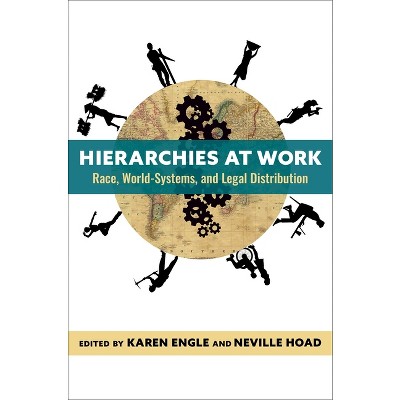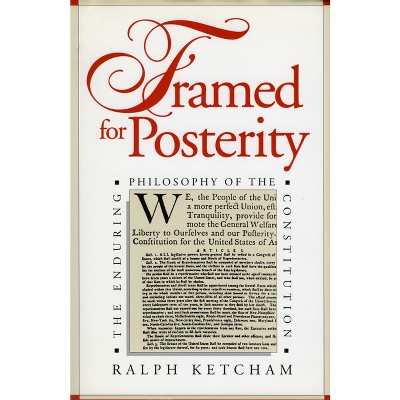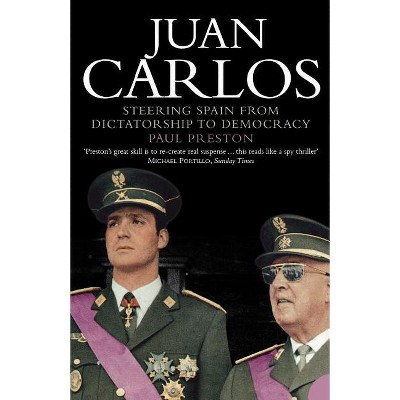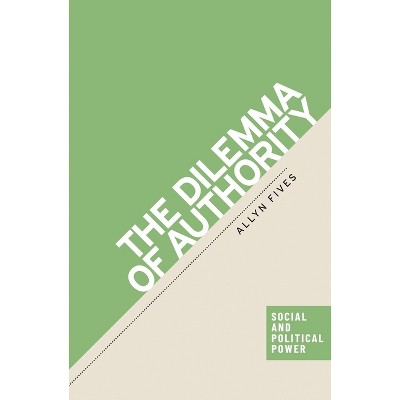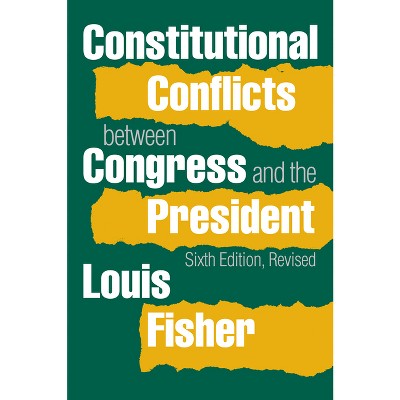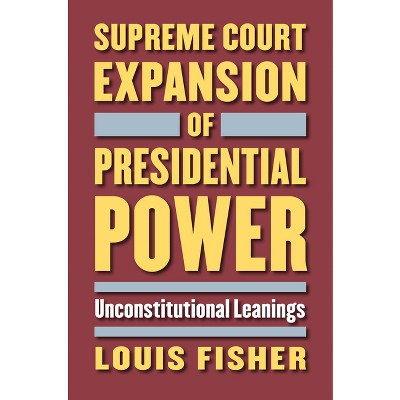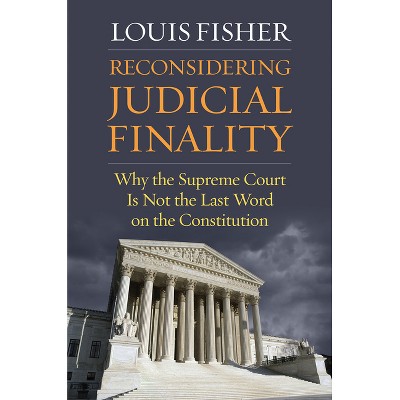Sponsored

The Hidden Cost of Freedom - by Brad L Fisher (Hardcover)
In Stock
Sponsored
About this item
Highlights
- How is it possible for an agency of the United States government to be exempt from providing what the US Constitution's Appropriations Clause describes as "a regular Statement and Account of the Receipts and Expenditures of all public Money"?
- Author(s): Brad L Fisher
- 360 Pages
- Political Science, Intelligence & Espionage
Description
About the Book
"The Central Intelligence Agency (CIA) is an agency of the US government whose funding is kept secret. How is it possible for a government agency to be exempt from providing "a regular Statement and Account of the Receipts and Expenditures"? In Hidden Cost of Freedom, Brad Fisher chronicles the origins and administrative inner workings of the CIA's clandestine financial system"-- Provided by publisher.Book Synopsis
How is it possible for an agency of the United States government to be exempt from providing what the US Constitution's Appropriations Clause describes as "a regular Statement and Account of the Receipts and Expenditures of all public Money"?
In The Hidden Cost of Freedom, author Brad Fisher presents a comprehensive narrative of the origin and early development of the CIA's clandestine financial system, beginning with the establishment of the Office of Strategic Services' Special Funds Branch during World War II. Fisher documents the controversial legislative history of the Central Intelligence Agency Act of 1949 from the standpoint of the CIA, the General Accounting Office, and congressional insiders, and describes the act's role in the transformation of the CIA's financial administration into a global enterprise for financing its foreign intelligence activities. Finally, he brings to light the story of his grandfather, Edwin Lyle Fisher, who had a major role in the postwar establishment of the CIA's funding system as the GAO's legal liaison to the CIA.
While the existence of the CIA's clandestine funding is no secret, Fisher's book is the first to trace its development and to show how the CIA's covert financial system was allowed to develop in a democracy devoted to checks and balances.
Review Quotes
"Fisher reveals how the CIA and its predecessor organizations developed budget processes that eventually bypassed any congressional or GAO oversight. Somehow, through all of this, Fisher actually makes the history of intelligence budgets interesting and informative."--Choice
"An important contribution to the intelligence literature. It adds a missing piece to CIA's early development and may inform policymakers and academics to consider some of the unique challenges at the intersection of the intelligence mission and budgeting."--The Cipher Brief
"Brad Fisher's deeply researched and cogently written study of the origins and development of the CIA's clandestine financial system fills an important gap in the field of intelligence literature. As in politics, money is the key factor in intelligence operations, and Fisher ably describes how the founders of the US intelligence establishment devised workable funding mechanisms for their worldwide operations in a complex and often hostile global environment. This book should be a part of any intelligence library."--David F. Rudgers, author of Creating the Secret State: The Origins of the Central Intelligence Agency, 1943-1947
"Fisher's Hidden Cost of Freedom uniquely lays out, as best as it can be done, the funding mechanisms that enabled the CIA to carry out its highly secret activities. Fisher's thorough research convinced me that he knows more about this topic than anyone, anywhere. Those who really want to understand the CIA of the early-to-middle-Cold War era will want to read this book."--David Barrett, author of The CIA and Congress: The Untold Story from Truman to Kennedy
"What started as a labor of love--researching the history of a grandfather--has morphed into a methodically detailed history of the Byzantine funding arrangements for the US intelligence community from World War II through the formative years of the Central Intelligence Agency. This volume fills a gap nobody has yet tackled: chronicling the financial system that keeps the cogs of the CIA discreetly running. Highly recommended."--Kenneth Conboy, author of Spies and Commandos: How America Lost the Secret War in North Vietnam
List of Acronyms
Acknowledgments
Prologue
Part One: Black Budgets and Public Accountability
1. The Problem of Funding a National Intelligence Service
2. The General Accounting Office
Part Two: Secret Intelligence Funding in Wartime
3. The Office of Strategic Services
4. The OSS Special Funds Branch
5. the Central Intelligence Group
Part Three: Secret Intelligence Funding in Peacetime
6. Public Oversight of the Atomic Bomb
7. Original Sin
8. The Protagonist, the Enabler, and the Antagonist
9. Legalizing the Working Fund
10. The Central Intelligence Agency Act of 1949
Part Four: The CIA, the GAO, the Cold War, and the CIA Act of 1949
11. The Military-Intelligence-Industrial Complex
12. The GAO and the Cold War
13. 1950
14. Clandestine Financial Administration
15. CIA-GAO Liaison under the CIA Act of 1949
16. The Annual Budget Ritual
17. Secret Programs under the CIA Act of 1949
18. The Dulles Letter
19. The end of Public Accountability
20. Hidden Costs
Epilogue
Notes
Index
Shipping details
Return details
Frequently bought together


Trending Non-Fiction






